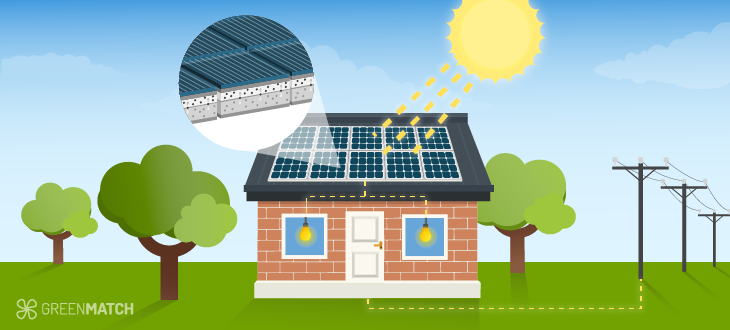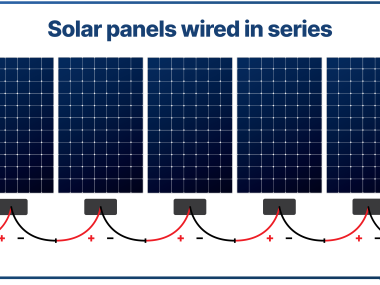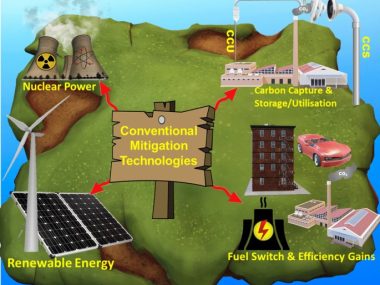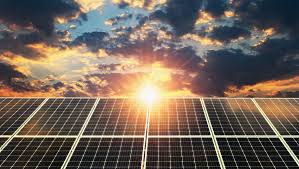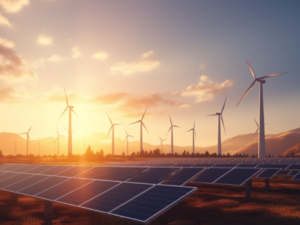What is Solar energy?
Solar Energy is any type of energy generated by sun directly. SOLAR ENERGY can be harnessed for human use, directly. Solar energy panels mounted on rooftop or rod stand in different part of the world, harvest solar energy and convert it to electricity for public and domestic use.
Solar Energy the heat and light energy is been derived by the sun. The energy can be used strongly or actively by humans through the activities like the designing of buildings to take account of natural effect of sunlight..
What is solar energy used for?
Solar Energy has a wide range of application, form heating, ventilation and cooling to generating electricity, cooking, water treatment, hydrogen production, transport. Some common application of Solar Energy inculdes
1. Residential and Commercial Rooftop Systems:
Solar panels installed on rooftops of homes, businesses, and other buildings can generate electricity onsite, reducing reliance on the grid and lowering utility bills. Net metering programs allow excess electricity to be fed back into the grid for credits or compensation.
2. Off-Grid Power Systems:
Solar Energy provides electricity to remote areas and off-grid locations where traditional grid power is unavailable or impractical. Off-grid solar systems typically include solar panels, batteries for energy storage, and inverters to convert DC electricity from the panels into AC electricity for use.
3. Water Heating:
Solar thermal systems capture sunlight to heat water for residential, commercial, and industrial purposes. Solar water heaters use either flat-plate collectors or evacuated tubes to absorb solar radiation and transfer heat to water, reducing the need for conventional water heating methods.
Can SOLAR ENERGY be stored
SOLAR ENERGY can be stored using thermal mass system using materials with specific heat capacities such as stone, molten salt, paraffin wax, earth or water. Solar energy can be sent directly to a grid, used to produce storable hydrogen fuel or used to pump water to a higher elevation so that it can then be recovered by releasing the water down through a hydroelectric power generator.
Solar Energy can be stored for later use, addressing the intermittency of sunlight and ensuring a reliable energy supply even when the sun isn’t shining. There are several methods for storing solar energy:
-
Battery Storage:
- Solar energy can be stored in batteries, allowing excess electricity generated during sunny periods to be stored for use when sunlight is limited or during nighttime. Batteries, such as lead-acid, lithium-ion, or flow batteries, store the electricity generated by solar panels and discharge it when needed, providing a reliable source of power.
-
Thermal Energy Storage:
- Solar thermal systems can store heat energy in thermal storage tanks or materials for later use in space heating, water heating, or industrial processes. Thermal energy storage systems can use sensible heat storage (e.g., water tanks) or latent heat storage (e.g., phase-change materials) to store and release heat energy efficiently.
-
Pumped Hydroelectric Storage:
- Solar energy can indirectly contribute to pumped hydroelectric storage, where excess electricity generated by solar power plants is used to pump water from a lower reservoir to an upper reservoir during periods of low demand. When electricity demand is high, water is released from the upper reservoir to the lower reservoir, passing through turbines to generate electricity.
Is solar energy efficient.
Yes, Solar Energy is considered to be highly efficient, particularly when compared to traditional fossil fuel-based energy sources. Here’s the reasons.
-
Energy Conversion Efficiency:
- Solar photovoltaic (PV) panels, which convert sunlight directly into electricity, have seen significant improvements in efficiency over the years. Modern solar panels can achieve efficiency rates of over 20%, meaning they can convert more than 20% of the sunlight they receive into electricity. Research and development efforts continue to improve solar panel efficiency, making them even more efficient over time.
-
No Fuel Consumption or Emissions:
- Solar Energy systems do not consume fuel or produce greenhouse gas emissions during operation. Unlike fossil fuel-based power plants, which require the continuous extraction, transportation, and combustion of finite fossil fuels, solar panels generate electricity without emitting harmful pollutants or contributing to climate change. This makes Solar Energy a clean and sustainable alternative to traditional energy sources.
-
Modularity and Scalability:
- Solar Energy systems are highly modular and scalable, allowing them to be deployed in various sizes and configurations to meet different energy needs. From small rooftop solar installations on individual homes to large utility-scale solar farms, solar energy can be customized to match specific requirements and conditions, enhancing its overall efficiency and flexibility.
When was solar energy discovered?
Humans used solar energy as early as the 7 century B.C, They also used sunlight to light fire by reflecting the sun’s ray onto shinny objects. Later the Greeks and Romans in 3 century B.C harneesed solar power with mirrors to light torches for religious gathering. A french physicist called Edmond Becquerel made a discovery in the year 1839, at the age of 19, discovered the photovoltaic (PV) effect while experimenting with a cell made of metal electrode in conducting solution. He noted that the cell produced more electricity when it was exposed to light . Gerald Pearson, Dary Chapin, Calvin Fuller made a discovery by developing the silicon PV cell, at bell labs in the year 1954, which gave birth to PV technology—the first solar cell capable of absorbing and converting enough of the sun energy into power to run everyday electrical equipment.
How does solar energy works?
Solar Energy works by converting energy generated from the sun into power for domestic or industrial use- Electricity and Heat. Both electricity and heat are generated through the use of solar panels, which ranges in sizes from residential rooftops and rod stands.
Advantages
1 Environmentally friendly
Solar energy does’nt release any harmful natural gas, hazardous by products, unlike with other energy sources, such as fossil fuel.
2 Renewable
Solar Energy is a fully renewable energy resource.
3 No fuel cost
There are no fuel cost associated with solar energy, which in turn save money.
Disadvantages
1 Reliability
Solar Energy is reliable, but it lack capacity to perform effectively, when the weather is not good. This means that it is better suited to some parts of the world than others.
2 Cost
Solar Energy technology such as solar panels can be expensive to install, perharp the cost maybe reducing.
What are the benefits of Solar Energy to our society.
Solar Energy has several benefits. It is the cleanest and most reliable form of energy, contributing to environmental protection and reducing carbon footprint . SOLAR ENERGY offers numerous benefits to society, making it one of the most promising sources of renewable energy. Some of these benefits are listed below:
1. Safer than Others
Solar power is safer and more secure than conventional power sources, whether it is for use or maintenance and repair.
2. Reduced Dependence on fossil Fuels
By harnessing Solar Energy, societies can reduce their reliance on fossil fuels such as coal, oil, and natural gas, which are finite resources with harmful environmental impacts. This diversification of energy sources enhances energy security and reduces vulnerability to fuel price fluctuations and geopolitical tensions.
3. Renewable Energy
Solar Energy is actually a source of renewable energy. It can be used all over the globe, i.e. it is always available. Solar energy, there is no end to it.
4. Energy Access and Independence
Solar power can provide electricity to remote and off-grid communities that lack access to centralized power grids. It empowers individuals, businesses, and communities to generate their own clean energy, reducing their dependence on centralized utilities and improving energy access and independence.
5. Electricity Bill Reduction
Since you will meet all your energy needs with electricity generated from s, you will get relief from the huge cost of the electricity bill. How much you can save on your electricity bill depends on your needs. Especially where there is no electricity supply.
6. SOLAR ENERGY is clean & green energy
There is some negative factors during electricity generation or other sources of energy and it may damages the environment due to hazardous pollution. On the other hand, there is no such difficulty in the origin of solar energy.
7. Not dependent on other sources of Energy
During the existence of Solar Energy, and its increased use, the pressure on other sources of energy has come down, which is a good sign for both the ecosystem and our society alarge..
8. Non-maintenance
No too much maintenance on Solar Energy. Just needs to be cleaned twice every year, but it should be kept in mind that cleaning should always be done by experts who specialize on the work well. Inverters are also a part of the componenets to be replaced in five to 10 years, that is, very little is spent on maintenance and repair work in addition to the initial cost.
Overall, solar energy offers a multitude of benefits to society, ranging from environmental sustainability and energy security to economic development and social equity. As solar technology continues to advance and costs decline, its positive impacts are expected to become even more pronounced in the years to come.
